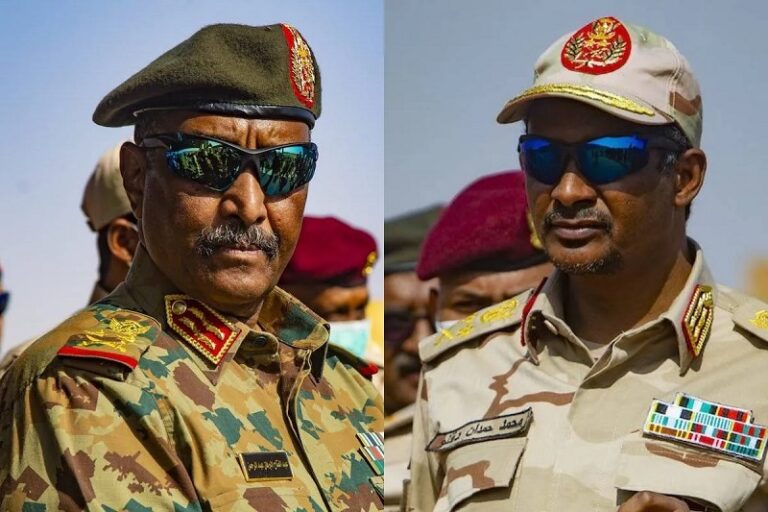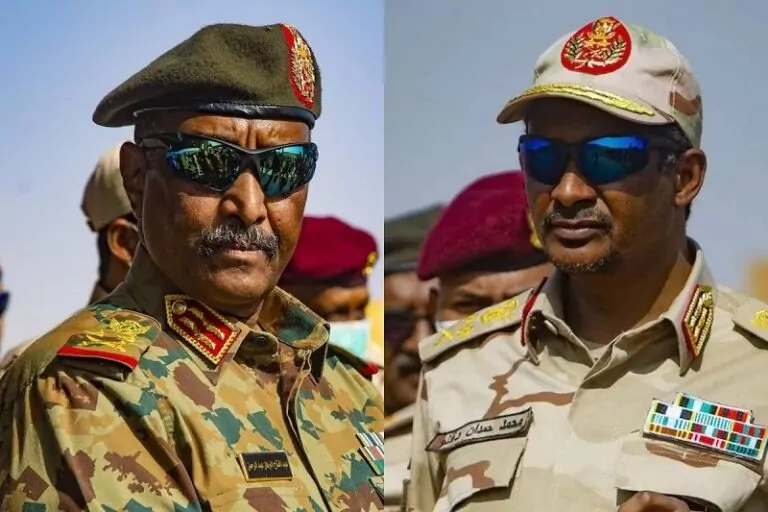

sudan's paramilitary leader calls for army command replacement amid humanitarian crisis
In his first appearance on TV since the conflict began, General Mohamed Hamdan Dagalo, a paramilitary leader in Sudan known as Hemedti, asked for the army’s command to be replaced. More than 3 million people have been forced to flee their homes as a result of the violence, which started in April as the Sudanese army and the paramilitary Rapid Support Forces (RSF) fought for control during a planned transition to civilian administration. It has also plunged the nation into one of the greatest humanitarian crises in history.
Early in May, a loud explosion shook Shambat, a section of Khartoum, the capital of Sudan. Locals rushed to put out the fires that were engulfing a temporary structure that they claimed were the result of an air attack. Too late, they were. Five witnesses reported finding a pregnant woman, a guy, and five kids among the smoking wreckage. According to two witnesses, the guy was buried nearby, and the lady and children were buried at the scene after the attack on May 7.
The seven Shambat attack victims have something in common with a lot of the others who have died in the violence that has wracked Sudan since mid-April: They are not counted in the official death toll in Khartoum State, where the Rapid Support Forces (RSF), the biggest paramilitary organisation in the nation, and the Sudanese army have engaged in the majority of the combat. The conflict has severely damaged the government and health services that typically record fatalities, rendering them largely inoperable.
A Reuters count of death statistics reported by local activists and volunteer groups suggests that the civilian death toll for the larger capital may be more than double the official count, emphasising the terrible effects of the more than 100-day-long war on the Sudanese people. As of July 5, there had been 234 fatalities in Khartoum State, according to a health ministry report made available to humanitarian organisations and obtained by Reuters. The study makes it clear that only civilian hospitals were used to acquire the data.
The frequent airstrikes and shelling, according to the locals, have scarred their children and destroyed their homes. According to them, the army and RSF engagement appear to be at a standstill, and they don’t see the fighting slowing down any time soon. Regional and international authorities have tried to resolve the issue through mediation, but they have been unsuccessful. A 40-year-old father of two from Shambat claimed, “Unless you want to destroy the entire area, you can’t win a battle like this.”
In the video, RSF members cheered for Hemedti while he apologised to the Sudanese people for the effects of the ongoing conflict on the paramilitary group’s Facebook page. We advise our military brothers that if they want a quick fix, they should change their leadership, and we’ll reach an agreement in 72 hours.
Hemedti further advised caution because Ahmed Haroun, a former official under the late President Omar Al Bashir who escaped from prison in late April, is in charge of the security committee in the country’s eastern regions, where the army is in charge. Hemedti has claimed in earlier audio messages that the army follows commands from the tyrant, who ruled for almost three decades.
US Secretary of State Marco Rubio ordered South African Ambassador Ebrahim Rasool to leave America by March 21 because he…
Early 2025 ends with IPL fever in India and cricket fans receive good news of an international schedule full of…
National teams from Africa advance their World Cup qualification pursuit as they take part in Matchday 5 of the qualifiers.…
Creative Africa Nexus (CANEX) is running the Book Factory Prize for Publishing in Africa again to award $28,000 to African…
Canadian companies have expanded their presence as major African mining stakeholders and invested more than $37 billion. Africa holds the…
The South African government wants people to plant one million trees across the nation within a single day on September…
This website uses cookies.